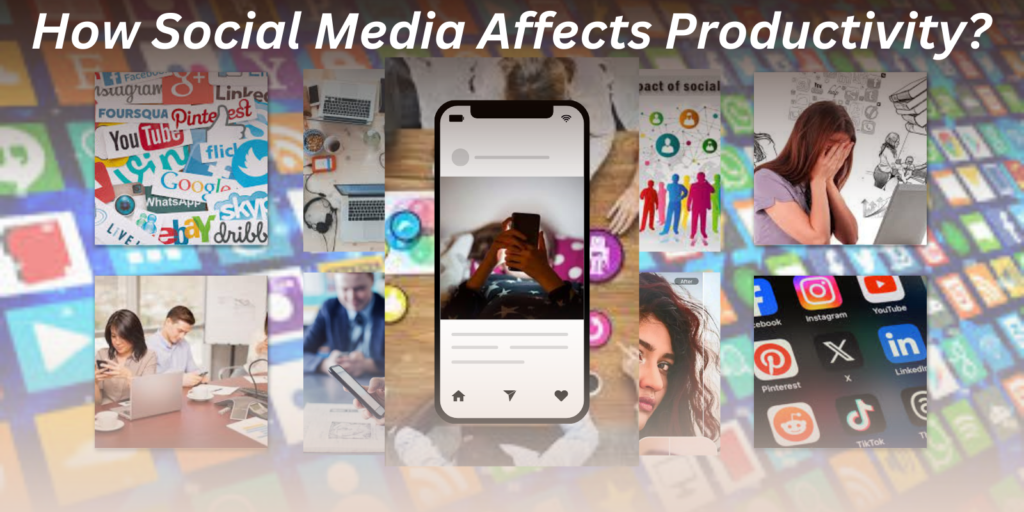Table of Contents
Toggle
- How social media affects productivity?
- Why is time considered a critical resource when discussing social media use?
- What makes social media a significant time sink?
- How does consuming curated content on social media alter your thought process?
- What are the effects of constantly comparing your life to others online?
- Why do social media highlights create unrealistic expectations?
- How does posting for validation harm your personal growth?
- What is the emotional cycle created by sharing content on social media?
- Why is it important to focus on long-term success instead of instant gratification?
- How does social media promote superficial values over meaningful achievements?
- What are the challenges of avoiding distractions while using social media?
- How can limiting social media usage improve productivity?
- What are the benefits of setting clear goals for social media usage?
- Why is patience crucial in achieving success, especially when influenced by social media?
- How can you replace social media time with more productive activities?
- What practical steps can be taken to stay focused in a social media-driven world?
How Social Media Affects Productivity?
Social media plays a central role in daily life today. While it seems harmless, it often disrupts productivity. This article explores how social media affects your ability to focus and achieve your goals. We will discuss the underlying issues and provide practical advice to minimize its impact.
The Time Sink of Social Media:
Social media is a major time-consuming activity. Hours fly by as you scroll through endless posts, videos, and stories. Even small breaks to check social media add up, eating into your valuable time.
Why Time Loss Matters:
Time is your most important resource. Every minute spent on social media could be used for personal growth, learning, or working on important tasks. Losing time to social media means you lose opportunities to improve your life.
How Social Media Changes Your Thinking?
Social media doesn’t just waste time; it changes how you think. Constantly consuming curated content from others trains your mind to focus on surface-level highlights instead of deeper, meaningful work.
Comparing Lives:
On social media, you see the most glamorous moments of other people’s lives. This leads to constant comparisons. You may feel like your life is less exciting or successful, even though those posts rarely show the full picture.
Unrealistic Expectations:
Seeing only the highlights creates false standards. Real success involves hard work, persistence, and overcoming challenges—none of which are glamorous. When you compare yourself to these unrealistic images, it’s easy to feel discouraged.
The Cycle of Seeking Validation:
Posting on social media creates a harmful emotional loop. You leave the present moment to document your life, post about it, and then wait for likes and comments. This constant craving for validation takes your focus away from meaningful work.
Why This Cycle is Harmful?
- Distraction: Focusing on social media keeps you from concentrating on important tasks.
- Dependency: Over time, you may rely on external approval instead of building internal confidence.
- Lack of Progress: Instead of working toward goals, you waste time seeking validation.
The Truth About Success:
True success comes from consistent effort over time. Most successful people’s lives are not glamorous in the early stages. Their work involves long hours, unglamorous tasks, and relentless focus.
Building Real Assets:
Successful people build assets—both internal, like skills and knowledge, and external, like businesses or investments. This work is rarely flashy but pays off in the long run. Social media’s focus on instant gratification makes it harder to embrace this slow, steady process.
Patience and Persistence:
The journey to success takes time. The early stages often involve little reward and a lot of effort. Over time, consistent hard work leads to significant achievements that bring lasting fulfillment.
Social Media’s Role in Mainstream Culture:
Social media encourages people to measure success by popularity. Posts with many likes and followers create the illusion of value. However, true value comes from impact and quality, not public approval.
Problems with Mainstream Metrics:
- Superficial Values: Social media rewards appearance over substance.
- Short-Term Thinking: The focus on immediate likes discourages long-term planning.
- Emotional Drain: Constantly chasing approval is exhausting and unproductive.
Using Social Media Wisely:
Social media can have benefits if used correctly. It’s a powerful tool for communication and business. However, the key is to use it with clear goals and limits.
Social Media for Business:
Using social media to build a brand or connect with customers can be effective. Focus on:
- Establishing clear objectives: Identify the outcomes you aim to accomplish.
- Creating Valuable Content: Share content that informs or helps your audience.
- Avoiding Distractions: Stick to your purpose and avoid unnecessary scrolling.
Avoiding the Trap of Consumption:
To use social media wisely:
- Limit Your Time: Set boundaries for how much time you spend.
- Be Selective: Follow only accounts that provide value.
- Focus on Real Life: Spend more time on meaningful offline activities.
Staying Focused on What Matters:
The most impactful work requires focus, discipline, and patience. Social media often distracts from this work by providing instant gratification and superficial rewards.
Practical Tips for Staying Focused:
- Create a Daily Plan: Outline your priorities and stick to them.
- Schedule Breaks: Use short, timed breaks instead of checking social media.
- Turn Off Notifications: Reduce interruptions to maintain your focus.
- Find Alternatives: Replace social media time with reading, exercise, or hobbies.
Conclusion:
Social media can kill productivity not just because of the time it consumes but also because of how it trains your mind to think. By constantly comparing yourself to others and seeking validation, you lose focus on the work that truly matters.
To achieve meaningful success, focus on building real assets and developing patience. Use social media wisely, if at all, and prioritize activities that add lasting value to your life. Your time and focus are too valuable to waste on the superficial distractions of social media.
FAQS:
1. How does social media affect productivity?
Social media disrupts productivity by consuming time and distracting focus from meaningful tasks.
2. Why is social media considered a time sink?
Endless scrolling through posts and videos takes up hours that could be spent on personal growth or important work.
3. How does social media influence the way people think?
It trains people to focus on surface-level highlights of others’ lives rather than engaging in deep, meaningful work.
4. What are the dangers of comparing lives on social media?
Comparing your life to the curated highlights of others can lead to feelings of inadequacy and unrealistic expectations.
5. Why is seeking validation on social media harmful?
It creates a cycle of distraction, dependency on external approval, and reduced progress toward meaningful goals.
6. How does social media impact success?
Social media promotes instant gratification, making it harder to embrace the patience and persistence required for real success.
7. What are the problems with social media’s metrics for success?
Metrics like likes and followers prioritize superficial values over true impact and long-term achievements.
8. Can social media be used positively for productivity?
Yes, if used with clear goals, such as building a brand or connecting with a target audience, while avoiding distractions.
9. What are practical tips for staying focused in a social media-driven world?
Create a daily plan, limit notifications, schedule breaks, and engage in meaningful offline activities.
10. How can people reduce social media’s negative impact on their lives?
Set time limits, follow valuable accounts, and prioritize tasks that contribute to long-term goals and personal growth.
